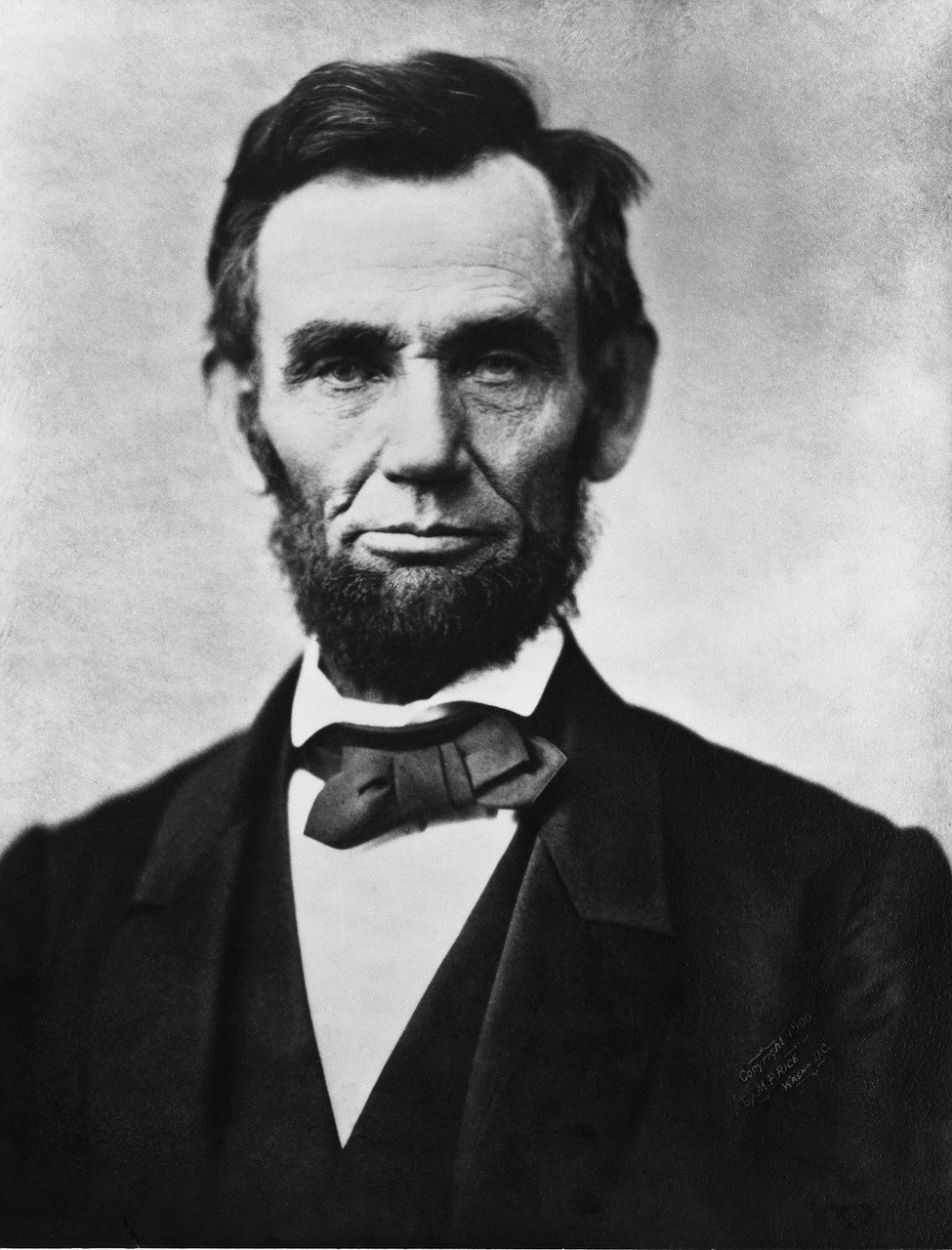 Abraham Lincoln was born on Feb. 12, 1909 to Nancy and Thomas Lincoln in a one-room log cabin in Kentucky. From there, his family moved to southern Indiana in 1816.
Abraham Lincoln was born on Feb. 12, 1909 to Nancy and Thomas Lincoln in a one-room log cabin in Kentucky. From there, his family moved to southern Indiana in 1816.
In 1830, Lincoln and his family moved to Macon County in southern Illinois where he worked on a river flatboat hauling freight down the Mississippi River to New Orleans. He then settled in the town of New Salem, where he worked as a shopkeeper and a postmaster.
Lincoln became involved with local politics as a supporter of the Whig Party and won the election to the Illinois State Legislature in 1834. He opposed the spread of slavery to the territories.
He met Mary Todd and they were married in 1842. They had four children together, although only one lived into adulthood.
Stephen Douglas, a leading Democrat in Congress, pushed through the passage of the Kansas-Nebraska Act (1854), which declared that the voters of each territory, not the federal government, had the right to decide whether the territory should be slave or free. Lincoln ran for Senate against Douglas and engaged him in a series of famous debates, including one in Peoria in 1854. Lincoln denounced slavery and its extensions and called it a violation of the basic tenets of the Declaration of Independence.
In early 1860, Lincoln became even more popular, which led the Republican Party to choose him as their candidate for president. He won most of the North and carried the Electoral College to win the presidency, becoming the 16th President of the United States.
By the time Lincoln was inaugurated in March 1861, seven southern states had seceded from the Union and formed the Confederate States of America. In April, he ordered a fleet of Union ships to supply Fort Sumter in South Carolina and the Confederates fired on the fort and fleet, officially beginning the Civil War.
On Jan. 1, 1863, Lincoln issued a preliminary Emancipation Proclamation, freeing all the slaves in the rebellious states not under federal control. Although the 13th Amendment, outlawing slavery, passed after Lincoln’s death, he played an important role in its passage, and emancipation remains one of his greatest achievements.
Lincoln ran for reelection in 1864 and won. A month after his inauguration, he was assassinated in the president’s box at Ford’s Theatre in Washington D.C. by John Wilkes Booth. On April 21, 1865, a train carrying his coffin left D.C. and traveled through 180 cities and seven states to his burial site in Springfield.
Honor Lincoln’s birthday and learn more about his legacy in the Land of Lincoln by checking out one of the many Lincoln sites in Illinois.





